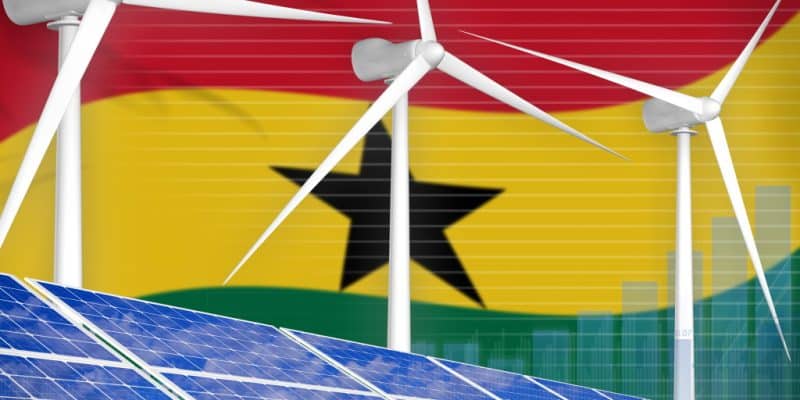The Africa Trade Insurance Agency (ATI) has signed a partnership with the government of Ghana. In this West African country, the pan-African insurer will deploy its liquidity support mechanism to support renewable energy producers.
Ghana subscribes to the Regional Liquidity Support Facility (RLSF). This initiative of the African Trade Insurance Agency (ATI), the German Development Agency (KfW) and the Norwegian Agency for Development Cooperation (NORAD) aims to support investments by independent power producers (IPPs). Specifically, this financial product is designed to address the short-term liquidity risks faced by IPPs selling electricity to utilities.
According to the ATI, this mechanism allows projects to reach financial close. “Through the MoU, IPPs in Ghana will benefit from the RLSF, which was created to help combat climate change and attract investment by supporting renewable energy projects in ATI member countries and protect IPPs from the risk of late payment by utilities,” says the Nairobi-based financial institution.
Support for independent power producers
The RLSF is expected to assist Ghana in developing its power sector. The country’s demand for electricity is growing by 10% per year, while Ghana wants to accelerate the development of its industry. According to Power Africa, the country has an installed capacity of 5,300 MW, twice the installed capacity of a country like Ivory Coast, at 2,229 MW. This electricity is produced by hydroelectric and thermal power plants.
Read also- GHANA: Kaleo solar photovoltaic power plant goes into operation
However, the country is continuing to diversify its electricity mix, particularly through solar power, the first of which has been commissioned in recent years. Ghana exports its surplus electricity production to Benin, Togo and Burkina Faso. At the same time, Ghana is one of the most electrified countries in sub-Saharan Africa with a rate of 86.63% for a population estimated by the World Bank at 31 million inhabitants in 2020.
Accra wants to achieve universal access to electricity by relying on renewable energy. “However, one of the main constraints to this vision is access to reliable and cost-effective electricity, as well as the current financial gap in the sector. The RLSF will therefore be available to ease the financial burden on the utility Electricity Company of Ghana (ECG), which is often asked to provide guarantees for similar liquidity instruments under power purchase agreements (PPAs),” the ATI says.
Jean Marie Takouleu






